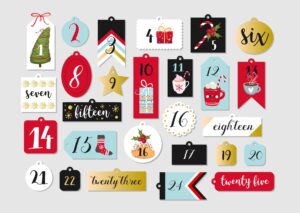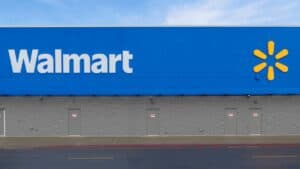November 25, 2015
Will PriceLocal help local retailers compete with Amazon?
Through a special arrangement, what follows is an excerpt of an article from FierceRetail, an e-newsletter and website covering the latest retail technology news and analysis.
A new online service called PriceLocal aims to level the playing field with Amazon.com and let local retailers price match items and provide same day availability.
PriceLocal was developed by a former Borders executive, Matt Chosid, as a way for smaller merchants to compete.
Consumers first need to add PriceLocal as a browser extension — it works with Chrome, Firefox or Safari — then search for a product on Amazon. A click of the PriceLocal button will send a price match request to local stores. If a match is found, shoppers get a coupon to redeem at the store.
The extension works only with Amazon Prime products, which have free shipping, and is free to both consumers and retailers. Retailers are required to sign up to get price match requests. PriceLocal plans to extend the program as a paid service to large national retailers, but local merchants can continue to participate for free, according to a company spokesperson.

Source: getpricelocal.com
"Amazon is a juggernaut that impacts the ability of local retailers of all sizes to compete, while consumers have the perception that shopping locally will be more expensive," Mr. Chosid said in a statement. "PriceLocal is a win-win for shoppers and retailers. Shoppers can find and get something right away at a fair price while supporting the local economy. And local retailers can level the playing field by turning local online traffic into increased sales and foot traffic."
There are quite a few steps involved, for both retailers and shoppers. But PriceLocal cites research from American Express that shows 93 percent of shoppers believe it’s important to support local businesses.
Local and personal offers are growing trends in retail. "People are still trying to parse local into cities and regions, but local is becoming more and more granular … by neighborhood, zip code, down to the shelf in a specific store," said Rebecca Lieb, industry analyst for Altimeter Group, at Shop.org in October. "Local is what is driving shoppers right now."
There is also strong evidence to suggest that consumers increasingly use Amazon as a search tool for products, bypassing Google and other search engines to access product information and reviews. According to BloomReach, nearly half of all consumer product searches now originate on Amazon.
PriceLocal was tested last year in the company’s local market of Ann Arbor, MI, and expanded last week to Minneapolis; Charlotte, North Carolina; and Austin, TX.
- PriceLocal lets small retailers match Amazon – FierceRetail
- Digital drives in-store by getting local and personal – FierceRetail
- Retailers big and small are going hyper-local – FierceRetail
- PriceLocal
- PriceLocal, Founded by Former Borders Exec, Provides Local Shopping at Prime Prices – PriceLocal
- Amazon Commands Nearly Half of Consumers’ First Product Search – BloomReach
Discussion Questions
Do you think shoppers will use a tool like PriceLocal to find products at local businesses rather than making a purchase from Amazon? What do you think of its potential payoff for local stores?
Poll
BrainTrust
Zel Bianco
President, founder and CEO Interactive Edge
Shep Hyken
Chief Amazement Officer, Shepard Presentations, LLC
Recent Discussions







Absolutely a winner, if PriceLocal is easy and delivers what is promised.
As the article states, there are a lot of customers that would buy local if they get a competitive offer. And the deal gets even sweeter if they can acquire the product within a day.
The retailer challenge will be logistics and local availability. What if a local retailer puts up a daily offer and only has a couple of items in stock? A key for consumer acceptance will be both “easy” and “reliable” supply.
A real danger for participating retailers will be complacency. While they might win the battle and get a sale that day, Amazon is geared up for the long war on many fronts. If a retailer does win a sale from Amazon, at what cost?
PriceLocal could be a big win for consumers. Could be a real loss for retailers who only compete on price, and lose the opportunity to win long term relationships through a superior customer experience.
Some will, but Amazon’s value proposition is based on creating so many touchpoints with a consumer that they fall out of the habit of shopping other places.
If it works the payoff is obvious — increased sales and the opportunity to expand one’s customer base. On the other hand, the economics of this offer aren’t clear to me so, if it gains popularity, Amazon could become downright predatory by posting deep discounts on low-margin items.
If local retailers — with presumably shallow pockets — are forced to match deep discounts and have to pay PriceLocal a bonus on top of that, the results might hurt, not help, their operations.
Some consumers may use this app, but most will stay with the easiest and most trusted option, Amazon. PriceLocal is a good idea, but it requires consumers to do too much: download the extension, do a search, check prices on Amazon (Prime only) and then go to the store to purchase the product. Why do this when you can have instant access to all of Amazon’s merchants and when, with a click, the product arrives on your doorstep, sometimes within hours?
Will PriceLocal provide relevant information to retailers and consumers? Absolutely! Will consumers use the service rather than Amazon? It depends upon whether the retailers can execute. Can they get the order to the consumer in a timely manner? If the retailers cannot follow through the approach will fall apart.
I think this this an excellent idea that could have huge potential for local stores. Plenty of shoppers use Amazon for convenience and then feel guilty for not supporting local business. Making the process of searching for a local, similarly-priced option more convenient is a stroke of brilliance.
Not sure how this will be successful without the promotions/discounts offered by the likes of Groupon. Still, there are some hardcore local consumers — often small business owners/workers themselves — who will see this as useful and drive at least a modicum of success for PriceLocal.
I think this is a great tool however, logistically, will this work? Are stock levels at local retailers up to date to hourly accuracy? The trust in this application will decide its success I think. If customers go to the store and it’s not there or if they can’t find local stores with products they want, then they will stop using it. Great idea though!
I’m not seeing this as a big deal, and trying to outdo Amazon is a profit killer. These are very difficult times for small business, and unless you can really bring the deep discounts every day, it will remain a huge challenge to grow sales. No one is immune from the online giant, and consumers like sitting home clicking in their pajamas and having the goods dropped off in two days for free. Partnering up with some regional suppliers that need to grow their business is a perfect match for small business, and to me, it is the best chance to be different and offer unique products, along with great values, that make your business stand out without competing directly against Amazon, which should help your bottom line. Good luck to all and Happy Thanksgiving.
Consumers will use a wide variety of tools for shopping. In an omnichannel world, with the consumer in charge, there is no guarantee that any one retail channel will be the sole choice.
Better to look at whether the retailer is fulfilling consumer expectations and meeting the “reasons” that people shop different merchandising categories MOST often. The consumer is consistently saying, that price, location, selection and quality provide the strongest leverage. Each of those can be readily eclipsed should the merchant focus efforts on customer service, knowledgeable associates, store appearance, online ease-of-use and services offered with online purchase as well as a dozen other reasons that are important to the shopper.
Retailing is no game for sissies. Keep an eye on the customer, as the wisdom of John Wanamaker and Marshall Field and other leading retailers of yesterday remains true today, as it will in days ahead: “The customer is always right” or “Give the lady what she wants.”
Go to Amazon. Find product on Amazon. Buy product on Amazon. Don’t interrupt me and don’t make it more difficult. No more steps please!
No, shoppers won’t like it. No payoff for local stores. First, retailers have to do better than match prices. They have to beat them. With Amazon I log on and it seems like I’m already signed in and they seem to know what I’m looking for. Click-click-done, wait for the mailman to come. PriceLocal is one more step and it doesn’t put cash in my pocket. Discover gives 5 percent rebates on Amazon three to six months a year. So PriceLocal has no relevance.
I think we must address this question honestly from the standpoint of when and why so many of us regularly shop Amazon. It’s true that the prices on Amazon for its myriad items are often low. So price could definitely be an appeal for shoppers who might also be tempted to try out PriceLocal. But if the convenience factor of being able to shop 24/7 right from home or office that is the primary draw to buying from Amazon (which I believe it is) then the local tool will likely have very limited appeal.
“If you build it, they will come,” works in the movies (“Field of Dreams), but doesn’t always work in real life. For PriceLocal to work, the customer has to know about it and then use it. For it to work there needs to be a “tipping point” where consumers use it as part of their shopping process.
PriceLocal is an intriguing concept. It offers several benefits to both consumers and retailers alike. That being said, the focus should be on the consumer benefits as that is what will dictate whether they are successful or not.
I see three primary benefits. First, PriceLocal appeals to those that, by rule, set out to support local business. Second, it is appealing to those that are concerned with the carbon footprint of ordering individual items from Amazon Prime. Finally, and probably the greatest appeal is that consumers can purchase and receive their new product that day instead of waiting for Amazon to deliver. The concept of instant gratification cannot be overlooked as it is the most valuable proposition PriceLocal can offer to consumers.
This could also be a good thing for sellers who only use Amazon, as retailers might want to seek them out and carry their products as well. This could be a very good thing.
Hi guys,
I’m the founder of PriceLocal. Great discussion – I really appreciate all of the interest. I wanted to emphasize a few points:
1. Amazon is the primary place where customers are researching products today. In fact, more product searches are done on Amazon (44%) than Google, Yahoo and Bing combined (34%) per BloomReach.
2. 92.5% of all retail sales are still done in brick and mortar stores per the US Commerce Department. Yes, Amazon does $100+ billion in sales, but out of $4.5 trillion in U.S. retail sales. So, once the customer knows what they want, the vast majority of the time, they still want to find a retail store where they can get it.
3. Customers don’t always want the lowest price, but they do always want a fair price. The Amazon Prime price that we ask retailers to consider matching is usually not the lowest price (with Amazon Prime much of the shipping cost is often “baked” back in to the price), but it is usually a fair price. Consumers have not yet given credit to retailers for having much more competitive prices with Amazon than they had in the past.
4. The choice to match or not is anonymous and always left to the retailer.
PriceLocal’s intent is to drive incremental foot traffic to retail stores (retail foot traffic is down 50% in the last 4 years), where the customer is likely to purchase additional items as well. PriceLocal helps to short circuit the process from (A) research to (B) same day purchase and possession without any shipping or delivery charge.
Thanks again for everyone’s interest!
Note to Matt Chosid: I was just about to write a note about your point #3. Retailers in position of providing the product quickly don’t necessarily have to match a low or falsely inflated (i.e. including postage) price. And, I have found that Amazon “lowest” offer usually has a catch, like the postage added, or slow to respond, etc.
Next, Matt’s conclusion was very cogent: You can tell that he’s done his homework.
…PriceLocal’s intent is to drive incremental foot traffic to retail stores …where the customer is likely to purchase additional items as well. PriceLocal helps to short circuit the process from (A) research to (B) same day purchase and possession without any shipping or delivery charge.
PS: I remember when Walmart came on the scene (!) and merchants all over the country worried about how to combat the nascent giant, getting people to shop in their stores, and the conclusion was to differentiate and offer service.
I think this is a great idea for local stores because it allows them to remain competitive with Amazon and offer something that the behemoth is still struggling with — instant gratification.
However, I have two reservations about this:
1. What if all shoppers used PriceLocal? I don’t think it would be sustainable for local stores on such a massive scale. This will only work if it’s a secret that only certain consumers know about. Would small stores be able to survive if they had to offer Amazon’s pricing on every transaction? (Sure, they don’t have to match every request, but then they’ll most likely lose the sale.)
2. Price isn’t everything in retail. Matching Amazon on price doesn’t take into account one of the many reasons why shoppers go in-store: the experience. Sometimes the service, displays, and atmosphere in a shop warrant a higher price. I’m sure many retailers won’t want to match Amazon because it could condition shoppers to only shop with them when they match prices. On the other hand, picking up an item in-store could also make for easier upsells and cross-sells. It’s much more persuasive when a clerk suggests an accessory based on what other people have bought and their expert opinion, compared to a “you may also like…” on a product page.